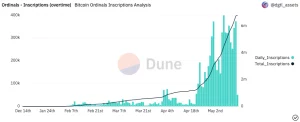Crypto On May 14, speculation circulated on Twitter that the first real-world Bitcoin transaction may have been for a JPEG rather than pizza.
In a tweet by independent developer Udi Wertheimer, the Bitcoin advocate shared a screenshot of what may have been the first-ever Bitcoin transaction, predating even the infamous Bitcoin pizza.
The posted screenshot is dated January 24, 2010, four months before Bitcoin Pizza Day, when Bitcoin developer Laszlo Hanyecz paid 10,000 Bitcoin for two pizzas in what is widely regarded as the first real-world Bitcoin purchase.
The screenshot depicts a user named Sabunir attempting to sell an image on the Bitcoin forum Bitcointalk for 500 bitcoin, or roughly $1 at the time.
It even highlighted the fact that Satoshi Nakamoto, the pseudonymous founder of Bitcoin, was attempting to assist with the sale.
In a tweet, professional poker player-turned-crypto investor Mike McDonald cites a screenshot indicating that the Bitcoin transaction may have been a donation, meaning that the JPEG was never actually “sold.”
In a subsequent tweet, Wertheimer admitted that his initial tweet may have been inaccurate, stating that although Sabunir did list a JPEG for sale at the price of 500 BTC and they received the same amount a month later, “it’s possible that the 500 BTC were sent as a donation for a different interaction” and the sale of the JPEG was never completed.
Without direct confirmation from Sabunir, the purpose of the 500 BTC transfer remains unknown, according to Wertheimer.
The rumor follows the Bitcoin Ordinals phenomenon, which, at the time of publication, saw over 6.1 million images, videos, and even tokens minted on the Bitcoin blockchain via the BRC-20 token standard.

Since the Ordinals protocol was created by Casey Rodamor on January 21, 2018, allowing users to “inscribe” new pieces of data on the Bitcoin blockchain, Wertheimer has been a prominent proponent of Bitcoin NFTs.
Since then, Wertheimer has been attempting to attract a new wave of NFT enthusiasts to Bitcoin via the Ordinals project Taproot Wizards, whose name is derived from the Taproot soft fork that enabled the creation of the Ordinals protocol.












